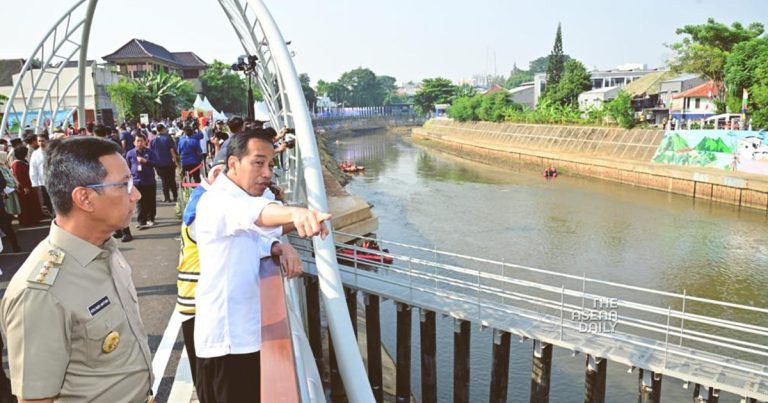1-8-2023 (JAKARTA) President Joko Widodo, also known as Jokowi, has reaffirmed the importance of downstreaming initiatives across various sectors to enhance Indonesia’s economy at both the national and regional levels.
During the inauguration ceremony of the national leadership council of the Indonesian Entrepreneurs Association (Apindo) in Jakarta on Monday, the head of state emphasized the positive impact of downstream policies on economic growth. He cited Southeast Sulawesi as an example, where the implementation of such policies led to an increase in the economic growth rate from 7.0-7.5 percent to an impressive 15 percent. Similarly, in North Maluku, the growth rate rose from 5.7 percent to 23 percent after downstreaming efforts were applied.
President Widodo expressed his belief that if all provinces in Indonesia adopt similar trends, the cumulative national economic growth would experience remarkable progress.
The President highlighted two essential conditions for Indonesia to transform into a developed country: first, optimizing the demographic bonus to enhance the quality of human resources, and second, implementing downstream policies across various industries.
Notably, the government has focused on downstreaming the nickel industry, resulting in a surge in employment rates in Southeast Sulawesi and North Maluku. The number of nickel processing workers in Southeast Sulawesi rose from 1,800 to 71,500, and in North Maluku, it increased from 500 to 45,600.
Additionally, the efforts have significantly increased the value of nickel reserves. For instance, in total, the value of processed nickel products escalated from Rp31 trillion (approximately US$2 billion) to Rp510 trillion (US$33.8 billion).
Building on these successes, President Widodo affirmed the government’s commitment to apply downstream policies to other minerals, such as copper, bauxite, and tin. Moreover, the President stated that the scope of these policies would be expanded to include non-mineral sectors, such as agriculture and fishery. He believes that such an expansion will empower micro, small, and medium enterprises (MSMEs), farmers, and fishers to produce value-added products, driving economic growth.
Indonesia boasts significant potential in the coconut and seaweed industries. With 4.1 million families relying on coconut farming and 63 thousand families engaged in seaweed farming, downstreaming these commodities could unlock substantial economic opportunities. By producing higher-value products, farmers would experience increased profits.
President Widodo called upon all stakeholders, including Apindo, to explore ways of exporting more commodities in processed forms. Additionally, he urged banks to consider providing financial support for downstreaming initiatives in various sectors as part of the country’s economic transformation efforts.
As Indonesia continues its journey towards economic prosperity, downstreaming policies stand as a pivotal strategy to maximize the value of its resources and foster sustainable economic development across the archipelago.




